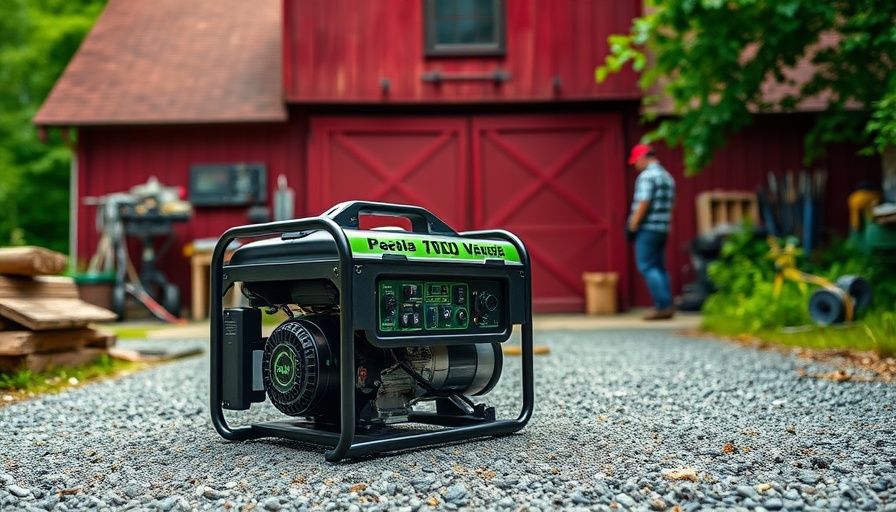
Choosing the Right Generator for Your Home: A Comprehensive Guide
As we navigate an era of increasing climate unpredictability, understanding how to adequately power our homes during outages has taken on a significant priority. Choosing the right generator isn't just about convenience; it's crucial for maintaining comfort and safety in your living space. This comprehensive guide will walk you through the types of generators available, how to calculate the size required, and why this knowledge is essential for every homeowner.
Understanding Generator Types: Which One Is Right for You?
When selecting a generator, you will encounter several types, each with distinct benefits suited for different needs. The primary types include:
- Portable Generators: These are ideal for emergencies and outdoor activities. Often powered by gasoline, propane, or diesel, they provide flexibility and can run appliances directly or through extension cords.
- Standby Generators: Integrated into your home’s electrical system, standby generators come to life automatically when the power goes out, providing seamless service for essential appliances.
- Inverter Generators: Known for their quiet operation and efficient fuel use, inverter generators create stable power suitable for sensitive electronics, making them a preferred option for homeowners looking to protect their devices.
Understanding these options is the first step toward making an informed purchase that suits your unique situation and needs.
Calculating the Correct Generator Size for Your Home
Knowing what you need to power is fundamental in estimating the generator size. Here’s how to go about it:
1. **List Your Appliances:** Make a comprehensive list of items you wish to power during an outage. Typical appliances include refrigerators, heating units, air conditioners, and critical electronics.
2. **Assess Wattage Requirements:** For each appliance, note the running wattage and starting wattage (often higher due to initial surge). This will give you a clear picture of your total energy needs.
3. **Add It Up:** The total wattage required is crucial for calculating the size generator you’ll need. Ensure to account for peak usages to prevent overloading.
For instance, a refrigerator may require 600 watts to run but could demand 1200 watts to start. Adding together these wattages could reveal your need for a generator with a capacity of at least 5000-6000 watts, depending on how many devices you want to keep running simultaneously.
The Value of Being Prepared: Why Size Matters
Understanding the size you need before purchasing gives you peace of mind and ensures you're prepared for potential power outages. Besides the immediate utility of keeping your home operational, there are broader implications. Those equipped with reliable generators can take further steps to enhance their self-sufficiency, incorporating practices like home gardening, which aligns with sustainable living ideals.
Pursuing a Sustainable Lifestyle: Beyond Generators
Owning a generator can commonly tie into larger themes of sustainability and independence. For individuals passionate about urban farming or community gardens, a reliable generator facilitates the use of technology enhancing these practices. From hydroponics setups that require consistent power to creating a warmer environment for seedlings during colder months, it all factors back into your ability to foster an ecosystem in your own backyard.
In a world where disruptions can occur, being prepared also means being adaptable. As you invest in power solutions, think about integrating methods that not just sustain your home but also promote environmental and social responsibility.
In conclusion, selecting the right generator and understanding your power needs is essential for all homeowners. Do thorough research, consider your lifestyle, and embrace sustainable practices that enhance your resilience against power outages.
Stay Prepared: Take Modern Steps Towards Self-Sufficiency
Preparing for potential power outages and embracing sustainable living can significantly enhance your quality of life. Equip yourself with the right knowledge and tools to ensure your home remains a place of comfort and community connection, even in challenging times.
 Add Row
Add Row  Add
Add 




 Add Row
Add Row  Add
Add 

Write A Comment